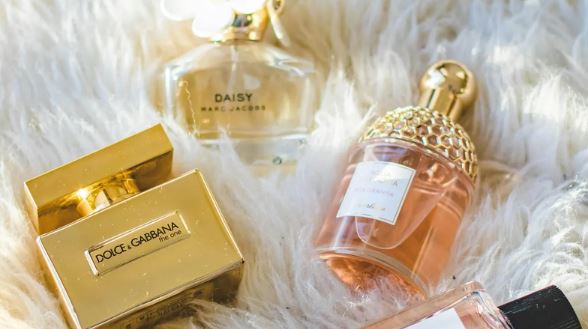Lifestyle
Why luxury fragrances are thriving amid economic challenges

Despite global economic challenges, one industry is thriving: luxury fragrances. Driven by a younger generation’s passion for smelling good, perfume sales are reaching new heights.
According to Sue Nabi, CEO of Coty, a leading cosmetics company that owns brands like Gucci, Marc Jacobs, and Calvin Klein, fragrance sales are booming, even amid economic uncertainty.
But why is this happening? And what is it about Gen Z that makes them such avid consumers of luxury scents?
The rise of fragrance as a “little luxury”
Sue Nabi’s comments to Yahoo Finance highlight an important phenomenon: fragrance is a form of affordable luxury.
In an era where inflation is squeezing household budgets, many consumers are cutting back on big-ticket items but are still willing to splurge on smaller indulgences.
Perfume, with its ability to evoke emotions, boost mood, and provide a sense of escape, fits this bill perfectly.
According to Coty’s third-quarter earnings report, the fragrance category in the US has grown by 60% compared to pre-pandemic levels.
Europe and China are seeing similar trends, with consumers continuing to purchase high-end colognes and perfumes despite economic constraints.
Nabi attributes this success to the enduring appeal of little luxuries.
“Even in an environment where people are constrained … this kind of little luxury is something people are not ready to give up on,” she said.
For many people, especially younger generations, wearing a signature fragrance is more than just about smelling good, it’s about self-expression and creating a personal identity.
Perfume is increasingly seen as a way to present oneself to the world, much like fashion or make-up. This shift in how people view fragrances is helping drive the category’s growth, particularly among the Gen Z population.
Perfume as a form of self-expression
One of the reasons why Gen Z is fuelling the fragrance boom is their view of perfume as a form of self-expression.
Unlike previous generations, who may have stuck to one or two signature scents, today’s young consumers are building what experts are calling a “scent wardrobe.”
This means they own multiple perfumes, each chosen for a different mood, occasion, or even aesthetic.
“Business Insider” reports that TikTok has played a pivotal role in this trend. In 2022, 45% of people who bought perfume said they were influenced by TikTok.
Gen Z is now choosing fragrances not just by how they smell but by how they fit into their lifestyle or persona.
For example, TikTok influencer Julia Dovgal (@juliaperfumery) frequently shares fragrance recommendations with her Gen Z audience.
Her videos feature perfumes that fit specific occasions, whether it’s a first date or a special event, creating a new way to think about fragrance.
This shift has encouraged young consumers to experiment with different scents, leading to higher sales for premium brands like Gucci, Burberry and Chloé.
Instead of sticking to a day and night scent, Gen Z is embracing a more nuanced approach, selecting perfumes based on their current mood, the season, or even their outfit.
The “scent wardrobe” and social media influence
Gen Z’s scent wardrobe is an extension of their desire for hyper-specific labels. Niche beauty trends, especially on platforms like TikTok, have blossomed into full-blown identities.
As fragrance influencer Emelia O’Toole (@professorperfume) explains, people now choose perfumes not just based on traditional scent notes, but on the stories and emotions those scents can evoke.
Creators like O’Toole have had to get creative to overcome the obvious challenge of selling fragrance online: you can’t smell through a screen.
Instead, they use vivid, emotional descriptions that paint a picture of how the fragrance will make you feel or the vibe it will convey.
For example, O’Toole might describe a perfume as being perfect for an elegant evening in New York, helping her 400,000 followers imagine how wearing that scent would transform their experience.
This storytelling approach has made fragrance shopping more engaging and personalised. Young consumers are no longer relying on traditional perfume advertisements or in-store testers.
Instead, they trust influencers and content creators who provide detailed, relatable narratives that align with their personal tastes and identities.
Why fragrance spending is resilient
Luxury fragrances have become a mood booster and a way for consumers to indulge in a little escapism, making them more resilient to economic downturns.
In a world that often feels chaotic and stressful, wearing a favourite scent can be a small but meaningful way to lift one’s spirits. This is especially true for Gen Z, who are using perfume as a form of self-care.






